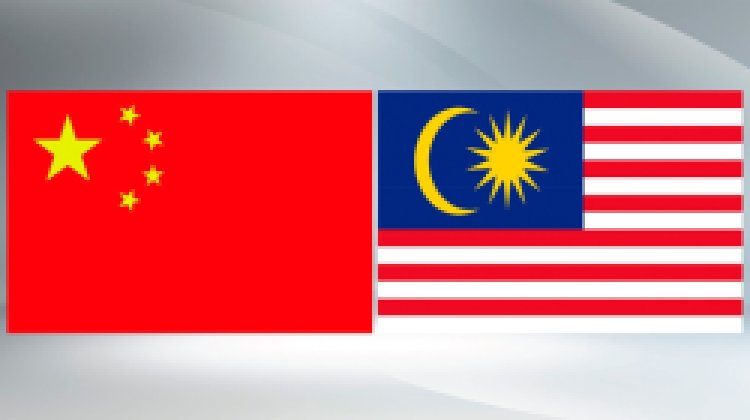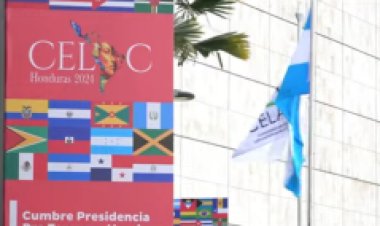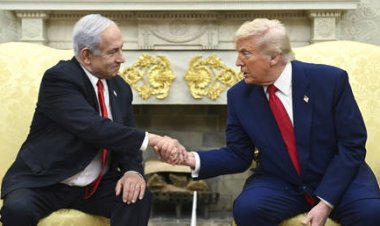Complete Text of the Article Authored by President Xi Jinping in Malaysian Publications
Ahead of his state visit to Malaysia, Chinese President Xi Jinping shared a signed article on Tuesday titled "May the Ship of China-Malaysia Friendship Sail Toward an Even Brighter Future." The piece was published in various Malaysian media outlets, such as Sin Chew Daily, The Star, and Sinar Harian.

The full text of the article reads:
May the Ship of China-Malaysia Friendship Sail Toward an Even Brighter Future
*Xi Jinping*
At the invitation of His Majesty Sultan Ibrahim, King of Malaysia, I will soon pay a state visit to Malaysia. This will be my second visit to your beautiful country in 12 years. I look forward to experiencing Malaysia's remarkable progress and transformation in person, and meeting with Malaysian friends to celebrate our friendship and plan for future cooperation.
China and Malaysia are friendly neighbors across the sea. The Maritime Silk Road has been a testament to our long-standing friendly exchanges. As a Malay proverb puts it, "air dicincang tidak akan putus," or "water can't be cut apart." Throughout history, the bonds of friendship between our peoples have only strengthened. Over 1,300 years ago, Chinese Buddhist monk Yijing traveled to the Malay Peninsula, providing the earliest known written account of the ancient kingdom of Kedah. More than 600 years ago, Chinese navigator Zheng He visited Malacca during his expeditions, which helped sow seeds of peace and friendship. Today, sites like the Sam Po Kong Temple and Princess Hang Li Poh's Well symbolize the longstanding admiration for Zheng He. Additionally, during the Chinese People's War of Resistance Against Japanese Aggression, Malaysian volunteers risked their lives to support China, a courageous act that is still remembered by both peoples. As we celebrate our shared history, our countries should work collaboratively to propel our ship of friendship toward a brighter future.
We must maintain a firm grasp on the strategic helm guiding our ship of friendship. Fifty-one years ago, amid the Cold War, leaders from both nations made the bold choice to establish diplomatic relations, thus opening a new chapter in Sino-Malay relations. China and Malaysia have respected each other’s developmental paths while maintaining our strategic independence. We have supported each other on core interests, serving as a model for mutually beneficial cooperation. In 2023, Prime Minister Anwar Ibrahim and I agreed to build a China-Malaysia community with a shared future, marking a new milestone in our relationship. To strengthen our ties, we should enhance strategic communication, boost mutual political trust, and implement the Belt and Road cooperation plan.
We must also prioritize results-oriented cooperation, which acts as the ballast for our ship of friendship. By 2024, trade between China and Malaysia reached 212 billion U.S. dollars, nearly 1,000 times the level at the start of our diplomatic relations. China has been Malaysia’s largest trading partner for 16 years straight, and Malaysian durians are now quickly reaching Chinese consumers. Moreover, the Malaysia-China Kuantan Industrial Park has attracted over 11 billion yuan in investments, promising many long-term jobs. Our collaboration is advancing across various sectors, including the digital economy and green development, and we must continue to deepen this cooperation.
Furthermore, we should encourage vibrant people-to-people exchanges to propel our friendship forward. Both countries have granted mutual visa exemptions, leading to nearly 6 million mutual visits projected for 2024, surpassing pre-COVID levels. The "Malaysia, truly Asia" campaign has successfully attracted Chinese tourists, while more Malaysians are traveling to experience China's rich cultural history. I hope our peoples will continue to visit each other frequently, particularly to foster connections among the younger generations.
We must also pay attention to collaboration at the multilateral level. As two major developing nations in the Asia-Pacific, we share common views on promoting global justice and development. We have maintained a close partnership within various multilateral frameworks, such as ASEAN and the UN. China welcomes Malaysia’s inclusion as a BRICS partner country, which aligns with the Global South's objectives. This year marks significant anniversaries, and as we commemorate these milestones, our countries should fortify mutual cooperation in international matters, promoting principles of peaceful coexistence and equitable global governance.
As a community with a shared future, China and Malaysia support one another through challenges and successes. The proverb "share weal and woe" encapsulates the essence of our relationship. We need to embrace change and work together toward a brighter future of growth and prosperity.
The enduring friendship between China and ASEAN nations has emerged stronger despite challenges. China was the first ASEAN dialogue partner to join the Treaty of Amity and Cooperation, establishing a free trade area and a comprehensive strategic partnership with ASEAN. The cooperation between China and ASEAN is notably effective, showcasing solidarity in the face of various crises. In 2024, trade between China and ASEAN surpassed 980 billion U.S. dollars. The upgraded Version 3.0 China-ASEAN Free Trade Area negotiations have concluded, and there is a growing appreciation for each other's products and cultures.
China firmly supports ASEAN unity and the role of Malaysia as the chair for 2025. China aspires to become a great modern socialist country and is committed to promoting global peace, development, and shared prosperity. With a resilient economy and strong growth potential, we aim for an economic growth target of around five percent in 2025. We will continue to pursue high-quality development and offer opportunities for collaboration to ensure regional and global economic stability.
In summary, unity fosters strength, and cooperation yields shared successes. China is dedicated to working with Malaysia and other ASEAN countries to navigate geopolitical challenges and to foster a closer China-ASEAN community.To achieve these goals, it is crucial that we focus on enhancing our collaborative mechanisms and ensuring that our trading practices are mutually beneficial. The regions of China and Malaysia are both rich in resources and opportunities that, when combined, can yield significant advantages. We must invest in innovations that leverage our respective strengths, promote sustainable practices, and embrace the digital economy to address the challenges of the future.
The development of infrastructure is essential to our continued growth and prosperity. Projects under the Belt and Road Initiative can serve as a springboard for economic growth and strengthen connectivity between our nations. By building modern transport and logistics networks, we can facilitate trade, enhance investment opportunities, and create jobs for our people. This infrastructure development should also prioritize environmental sustainability to ensure that we not only grow economically but do so responsibly.
Cultural exchange is another vital area that can enhance our bilateral ties. By promoting educational initiatives such as joint research programs, student exchange opportunities, and scholarships, we can cultivate a deeper understanding and appreciation of our respective cultures among the younger generations. This understanding is key to fostering long-lasting friendships between our peoples, further enriching the tapestry of our shared history.
As we move forward, we must remember the importance of a peaceful and stable regional environment. Geopolitical tensions can undermine the progress we strive to achieve. Thus, it is vital that we advocate for dialogue and diplomacy in resolving conflicts and misunderstandings. By standing united, China and Malaysia can champion a peaceful coexistence that contributes not only to our prosperity but also to the stability of the broader region.
Our commitment to multilateralism will play a significant role in how we navigate future challenges. By strengthening our engagements at international forums, we could promote a rules-based international order that respects the rights of all nations. We can work together to ensure that the voices of developing countries like ours are heard and considered in global governance structures.
Moreover, we must be proactive in addressing pressing global issues such as climate change and public health. Collaborative efforts focused on sustainability will not only benefit our present societies but also pave the way for future generations. Sharing best practices in agriculture, renewable energy, and waste management can contribute significantly to our mutual goals of achieving a greener economy.
In conclusion, the foundation of our friendship is rooted in our shared histories, but it is our collaborative efforts in the present and future that will define its success. As I prepare for my visit, I want to reaffirm my belief that the ship of China-Malaysia friendship will sail toward an even brighter future, driven by a shared vision of progress, cooperation, and mutual benefit.
Let us embrace this opportunity to enhance our ties, cultivate peace, and foster an enduring partnership that can weather the storms of change. Together, we can not only secure a prosperous future for our nations but also inspire a global community built on understanding, respect, and shared aspirations.
Max Fischer for TROIB News
Find more stories on Business, Economy and Finance in TROIB business












